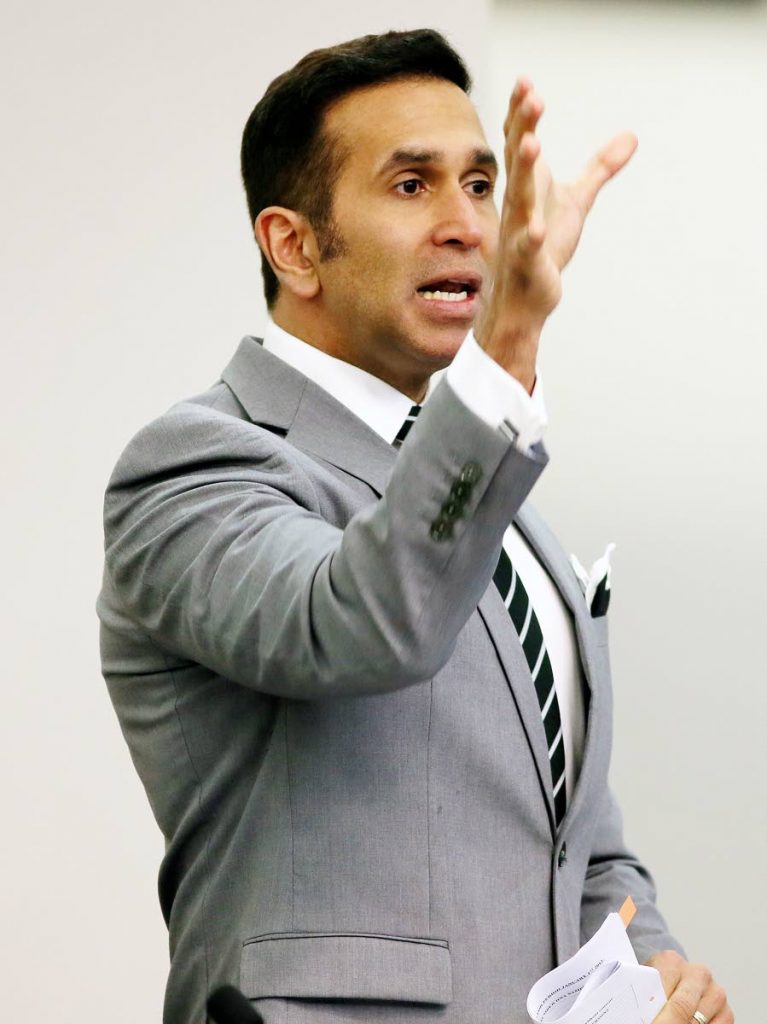2% convicted

ATTORNEY General Faris Al-Rawi has reported that from the year 2000 to present there were 13,630 sexual offences cases and the number convicted was a “whopping” 321 or approximately 2.36 per cent.
“Number of sexual offences cases solved using DNA evidence? Zero.”
He was piloting a motion to approve the Administration of Justice (DNA) Regulations in the Senate yesterday.
Al-Rawi said that after 18 years of law, four sittings of Parliament times two, ten sittings of a joint select committee and billions of dollars among National Security and other ministries “and we have zero convictions on DNA evidence” for sexual offences.
“We saw in the papers the memory of Akiel Chambers who would have been 31 years old but DNA evidence is available from that site. And that unknown perpetrator could have been brought forward as they found evidence of sexual abuse of, God rest his soul, that beautiful young boy found at the bottom of a pool. But 19 years later no operationalised DNA laws.”
The body of 11-year-old Akiel Chambers was found at the bottom of a swimming pool at a Maraval home on May 23, 1998 after he attended a birthday party. His killing remained unsolved and the Police Complaints Authority recently announced it will conduct an audit into the police investigation of the case.
Al-Rawi said the regulations were about using technology that had been tried and tested in many jurisdictions to the forefront of crime fighting in this country. He also said technology saved victims from the trauma of testimony.
“Imagine the impact of telling a victim of a rape, of telling a victim of a sexual offence, or worse yet, telling a child who’s a victim of sexual offences that the evidence can speak for you.”
He said in the Ministry of Justice and other ministries more than 22 billion had been spent on implementing DNA legislation and questioned why it took six years for it to be operationalised.
Al-Rawi said the law will have DNA profiles for 18,091 service personnel, private security network and, as at March 16, 1515 convicted people, 2317 on remand for a total of 3,832. He said these samples, along with ongoing samples from suspects, detainees and prisoners, will form the DNA databank.
He said that a DNA custodian has been chosen and 11 personnel were hired. Al-Rawi said that as he spoke 15,000 DNA buccal (mouth) swabs were coming into this country and the DNA profile kits cost $20 for one. He said there will be anonymity of DNA profiles and only the profile will go to the DNA custodian.
“Trinidad and Tobago crying out for this.”
Al-Rawi said the regulations were not perfect, but no law was perfect.
“We’ve had a problem in our jurisdiction of people just starting. We’re always invited, let’s discuss some more. Let’s have some more discussions. Let’s come up with a perfect product. What about this? What about that? What about starting? What about getting past 19 years of talking and starting for the 13,000 sexual offences?”
He added that the DNA system would apply to murders as well.
Mark in his contribution said “We would like to stand very firmly with the Attorney General. (But) we do not like to stand on quicksand.”
He said the regulations left a lot to be desired and the Opposition intended to propose several amendments. Mark said two months ago Al-Rawi announced the 15,000 DNA kits were en route to Port of Spain.
“Now the AG addresses us today and says as he is speaking those DNA kits are being cleared at the Customs level. And I’m happy that it took longer almost than the Fatel Razack to arrive here. And I don’t know about the Galleons Passage; we are in trouble with that.”

Comments
"2% convicted"